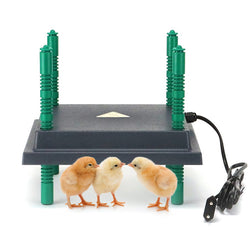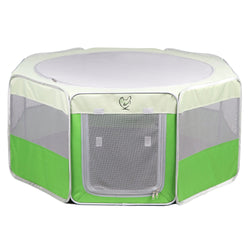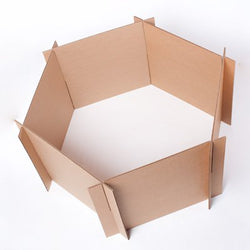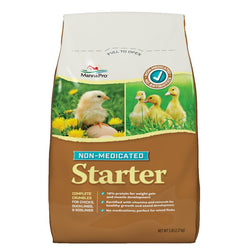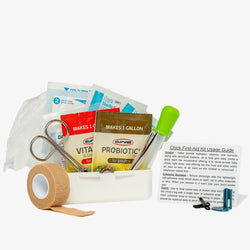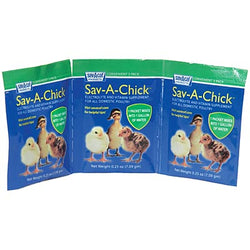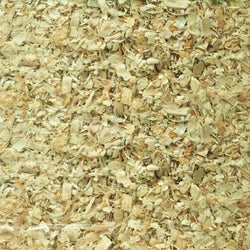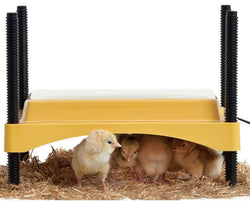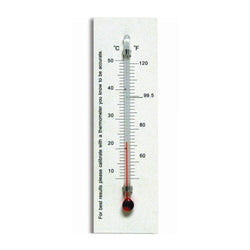Washing eggs, and why you shouldn't
Back to blog
To wash eggs or not to wash eggs... that is the question! Except that it's not much of a question for me. Washing eggs is something that can be on the risky side, if you do it wrong, so I don't wash my eggs unless they're soiled. Even then, I don't wash them unless they're VERY soiled. And if they must be washed, I make sure to eat them before any of my good, unwashed eggs.
The reason I don't wash them is that eggs are laid with a natural, protective "bloom" on them. This coating helps keep bacteria out of the fresh egg.

Washing removes the bloom and can actually contribute to bacterial contamination. In the US, commercial egg producers claim that washing eggs is "necessary for cleanliness," but the truth is that it's only necessary for cleanliness when the hens aren't kept in clean, humane conditions. (To see actual conditions factory farmed hens are forced to endure in the US click this link--but please be aware that the contents and photos are DISTURBING, so we only recommend looking if you have a strong stomach. Otherwise, just take our word for it.)
Egg washing is not necessary--and it's actually illegal in the UK and EU for eggs that have been washed to sold as their top grade---Class A eggs. And since no one wants to buy dirty eggs, there is an incentive for the farmers there to provide clean conditions for their layers. Further, Mother Earth News did a very interesting study that demonstrated that eggs keep longer if unwashed---their store-bought agribiz eggs didn't keep nearly as well as unwashed farm eggs.
So what's the deal? Why would anyone want to wash their eggs?
Well, in the US, eggs from large commercial farms are required by the USDA to be washed with a detergent, and then sanitized chemically. In my state, this goes even for eggs produced humanely by small farmers. And there are all sorts of rules attached to the washing procedures, because incorrect washing significantly increases the risk of serious contamination. For washing eggs, the water has to be 20 degrees warmer than the egg (cooler water can contribute to the bacteria penetrating the shell). Then there is the chemical sanitizer. Finally, the eggs must be thoroughly dried, because bacteria can't penetrate a shell that's dry (which is why eggs aren't washed in the EU). A wet egg shell provides a great medium for any bacteria to get inside and start growing.
Negligent egg washing tends to be more dangerous than not washing eggs at all. And in the home flock where hens are properly cared for--- where hens have a clean, dry run as well as clean, dry bedding in the coop? I'll say it: washing eggs that are already clean---and protected with the bloom---is silly. If you sell eggs from your hens, of course be sure to follow your local regulations, silly or not!
When it comes to refrigeration, it generally makes good sense to refrigerate your eggs. In the US, grocery stores are required to refrigerate eggs; in the UK by contrast, eggs should be kept at room temperature. I refrigerate my eggs, mostly because it keeps them fresher. Less evaporation through the egg shell occurs in cooler temperatures. Plus, in my particular case, I don't have central air conditioning in my tumbledown old cottage. That means that in the summer, I wouldn't be storing eggs at a normal ~70 degree room temperature. Heck, this summer during the worst of the heat wave, room temperature at our farm was as hot as 108. That's even too hot to hatch the eggs---too hot by many degrees!
To be clear, even if your eggs are fertile, the likely hood of having them hatch on your counter because the temperatures are hot in your house is about zero. It's hard to hatch eggs. I only inserted this photo jokingly, to illustrate a point. And okay, I also used it because if anyone followed the link to see what factory farm conditions are like, they may need a cute photo like this to help shake off the horror.
As for egg storage, there are other reasons to refrigerate your eggs besides the real threat of rapid evaporation and aging, and the fake threat of waking up to a counter full of baby chicks.
For instance, have you ever collected eggs in cold weather and set them on your counter or table inside for a few minutes before packing them away into the refrigerator? Perhaps you've gone to get some more egg cartons, or you get distracted by your kids or another pet. If you've done that, you've probably noticed that when eggs are very cold outside and come into a warm area like your kitchen table or counter, condensation can collect on the shell. As we discussed above, a wet shell is not a good thing--it provides a vehicle for bacteria to get inside. And if there is, despite the odds, any bacterial contamination inside one of the eggs your hens have laid, the cooler temperatures inside your refrigerator would prevent it from growing as quickly.

Even in the US, it's pretty common for small flock owners not to refrigerate eggs for short-term storage before eating at home. Many people use an egg basket or wooden egg holder to show off the beauty of their flocks' eggs. And in fact, I have to admit that before I hard boil eggs to make deviled eggs, I generally let them sit out on the counter overnight. Obviously, this is not so much because I want to show them off to any unexpected overnight guests! It's because the extra evaporation that will occur at warmer temperatures can help make the eggs easier to peel.
But for me, it's NO to washing, YES to refrigeration. What about you---how do you handle your flock's eggs? And for those who sell your eggs, do you treat them any differently than you do for eggs you eat at home?
